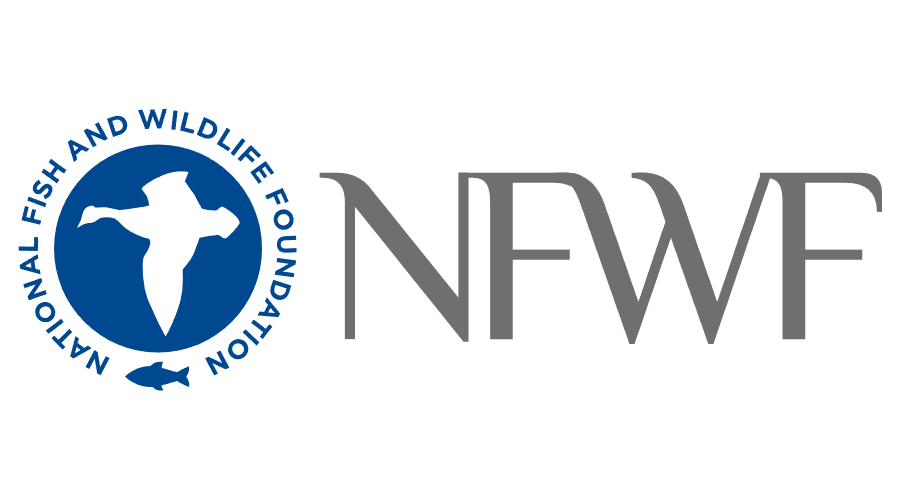Longleaf Program
FLA’s Longleaf
Pine Program
Since 2017, FLA has provided cost-share opportunities for landowners to plant and manage longleaf pine on their property. Each year, we see increased interest from private landowners who want to plant new longleaf stands or improve their existing longleaf pine habitat
2025 Application Period Is Closed
Questions? Email Katie Moss at
kmoss@forestlandowners.com
Why Longleaf Pine?
The longleaf pine ecosystem once encompassed more than 90 million acres of North America, from Virginia to Texas. Less than 5 percent of the original acreage remains. Private landowners have the unique ability to help restore longleaf pine on a landscape scale. New management techniques, improved seedling quality, and the many environmental benefits of growing longleaf pine present a valuable opportunity for private forest landowners. Through funding from the National Fish and Wildlife Foundation’s Longleaf Landscape Stewardship Fund, FLA seeks to promote both the economic viability of working forests as well as the biological uniqueness of the longleaf pine region.
Longleaf Pine Restoration Cost Share
The Forest Landowners Association has cost-share funds available through the National Fish and Wildlife Foundation’s Longleaf Landscape Stewardship Fund for private landowners for private landowners to establish new stands of longleaf pine or manage existing longleaf stands on their property.

What You Need to Know to Apply
Unlike other cost-share opportunities, the process to receive these funds is simple and straightforward. There are no AGI limits, acreage caps, or government forms. To learn more watch the video below!
Qualifications include:
- Fill out the application linked above and return to kmoss@forestlandowners.com by May 16th, 2025
- All planting and management activities must take place between April 2025 – March 2026
- All activities must take place in the historic longleaf pine range
- Photos of planting and/or management activities must be submitted to FLA in order to process cost-share payments
- A shapefile, map, or central coordinate point(s) for project areas is required.
Note: All geolocation data is confidential and will be used for internal reporting only at FLA and NFWF.
Additional considerations that will help determine funding recipients, but are not a requirement to apply:
- Are you establishing new stands of longleaf pine on pastureland or agricultural land?
- Does your longleaf pine planting provide connectivity to additional longleaf pine habitat, either publicly or privately owned?
- Does your longleaf pine planting demonstrate clear wildlife benefits beyond general habitat restoration (e.g., will these activities benefit at-risk or listed species currently on your property)?
- Does your longleaf pine planting demonstrate additional benefits to the community (e.g., do you or the organization you represent provide educational workshops or other opportunities to engage with the local community about longleaf pine restoration?)
- Will you be implementing other practices that benefit longleaf pine wildlife and habitat (e.g., planting native understory or pollinator species)
- Are you converting an existing pine stand to longleaf?
- Are you currently a member of FLA?
Award recipients will be notified by June 2025.
How to Use Funds
Plant Longleaf
FLA will provide $50 per acre in cost-share assistance for establishing new longleaf pine stands, including site preparation and planting.
Managing Longleaf
FLA will provide cost share at $15 per acre for the appropriate management of existing longleaf pine stands through the use of:
- Prescribed fire
- Thinning
- Invasive species removal
- Herbicide application
- Planting native understory species
Priority will be given to prescribed burning projects.
Frequently Asked Questions
- Is there an acreage cap for this cost-share application?
- No – there is no maximum or minimum acreage requirement
- I am enrolled in a USDA program (CRP, EQIP, etc.), can I still apply for cost-share funding?
- Yes
- Have other questions?
- Email Katie Moss at kmoss@forestlandowners.com
Longleaf and Wildlife
The Southeastern U.S. is one of the most biodiverse regions in the world, and longleaf pine has historically been a contributing factor to that biodiversity. More than 30 endangered and threatened species rely on longleaf pine for their habitat, as well as several at-risk species and other recognizable wildlife. Some of these species include
- Red-cockaded woodpecker
- Gopher tortoise
- Indigo snakes
- Bobwhite quail
- More than 68 species of migratory and native birds
With over 80% of forestland in the Southeast privately owned, collaborative conservation between landowners and the U.S. Fish and Wildlife Service is key. Conserving at-risk and listed species in the longleaf pine range while providing regulatory certainty for landowners and keeping working forests working is a priority for FLA.

Read more about our collaborative efforts in the Southeast below:
FLA Hosts Timber Talk in South Carolina
Timber Talks and Forest Forums
Range-wide Conservation Plan for Longleaf Pine (2025-2040)
Help Keep Eastern Diamondback Rattlesnake Off the Endangered Species List
FLA Holds Timber Talk on At-Risk Species and Forestry Best Management Practices
Collaborative Conservation Leads to Decision to Not List Gopher Tortoise in Eastern Segment
Forest Landowner Magazine Longleaf Issue
FLA’s Longleaf Grant History: 2017-2023
Since 2017, FLA has provided cost-share opportunities for landowners to plant and manage longleaf pine on their property. See our progress below:
America’s Longleaf Restoration Initiative
FLA is part of America’s Longleaf Restoration Initiative (ALRI), a collaborative effort of both public and private sector partners supporting efforts to restore and conserve longleaf pine ecosystems. In 2021, the ALRI established more than 135,000 acres of longleaf forests, implemented prescribed fire on 1.6 million acres of longleaf, and protected 54,000 acres. We currently serve on the ALRI’s Longleaf Partnership Council representing family forest landowners.
Learn more about ALRI here.
Additional Resources
NFWF Announces $7.5 Million in Conservation Grants to Restore Iconic Longleaf Pine Ecosystem
The Tortoises of Camp Shelby | Garden & Gun
This program is possible in partnership with the National Fish and Wildlife Foundation.
